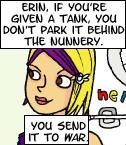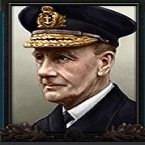Jimmer
Posts: 1968
Joined: 12/5/2007
Status: offline

|
quote:
ORIGINAL: Marshall Ellis
Jimmer:
Yes BUT ... garrisons would be created in a French turn file BEFORE collected by other players. This is the problem that I must contend with.
These issues only happen while trying to make reinforcement simultaneous. Econ and Diplo shouldn't be a problem.
However, there are OTHER problems that could crop up in diplo or econ. Or, maybe just diplo:
Powers who declare war may be being treated as being at war for numerical calculations, even though they are not yet at war.
Instability/Fiasco calculations may cause the loss of a minor that someone else might want to declare war upon.
Etc.
However, all of these are ALREADY issues (like, the security issue from last night). They need to be solved if only for that reason alone. Once the decision was made to make the diplo phase "act like" it was simultaneous, it needed to be fully treated that way, in all respects, at least to the outside world.
BUT, internally, the computer can store up all of the steps people went through, and then apply them in the right order. While there are issues that might come up, I can't think of any at this time.
Think of it like a draw poker game. If you deal five cards to each player, they form a poker hand. Each person gets to draw some cards to replace those in his hand. A champion poker player will base his decision of how to play partly upon how many cards the previous players drew. However, one could design a poker game where all of the players drew their cards at once, say, if we wanted to play by email. They still would receive the cards in the order the cards were on the top of the deck. But, none of the actions would occur until all of the players had turned in their orders. Then, everybody would see all of the changes at once.
Now, this poker game loses a bit of the skill of draw poker. However, playability would be enhanced, because all X players could draw at the same time.
The same principle applies to EiA. Only there are far more interactions. Some interactions could impact other decisions. But, theoretically, players shouldn't be able to see that information now anyhow.
Now, back to reinforcement: A similar mindset COULD be applied. But, first, one must determine all of the possible interactions that could invalidate a player's choices. For example, having two forces in the same area. But, in regards to the whole game as a unit, these instances are quite rare. They can be handled by exception processing TO THE TURN ORDER:
Let's say you use my idea of reinforcement: Five powers go simultaneously, and then GB, and finally France. Before the reinforcement phase starts, determine all of the possible locations on the map where there could be a conflict. ALL of them.
Then, for each one, force those two players to be done sequentially, but leave the remainder of the players simultaneous.
It is never possible to need an order change between two warring powers. This is because all areas and cities have to be solely occupied by one power or the other (rural areas are separate from cities, for this purpose).
Allies, however, can trip each other up. They can be in the same territory. They can also be alone in a friend's country, where troops could appear. But, allies cannot change status to enemy during reinforcement.
So, all that needs to happen is have all spaces on the map checked for two forces (allied) and then special-case them: They go sequentially, as related to each other.
Using this method of thinking, basically, all powers are still going sequentially. However, the actual steps are not taken until all non-sequential nations have finished turning in their orders.
_____________________________
At LAST! The greatest campaign board game of all time is finally available for the PC. Can my old heart stand the strain?
|
 Printable Version
Printable Version






 for a miracle - God, you listening?]
for a miracle - God, you listening?] 






 New Messages
New Messages No New Messages
No New Messages Hot Topic w/ New Messages
Hot Topic w/ New Messages Hot Topic w/o New Messages
Hot Topic w/o New Messages Locked w/ New Messages
Locked w/ New Messages Locked w/o New Messages
Locked w/o New Messages Post New Thread
Post New Thread